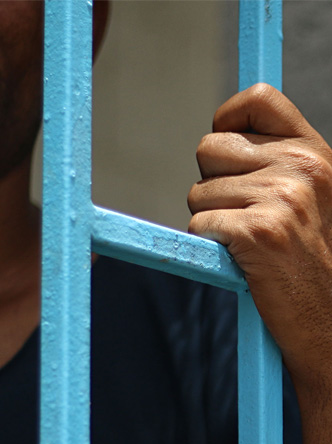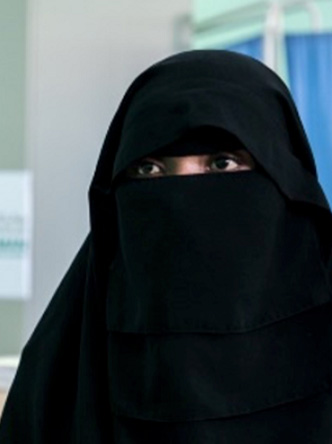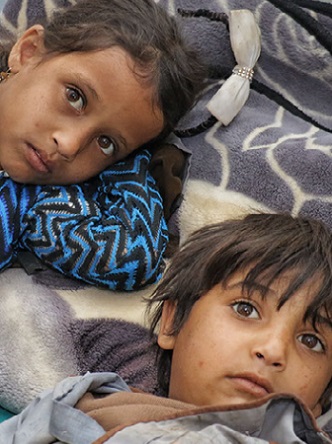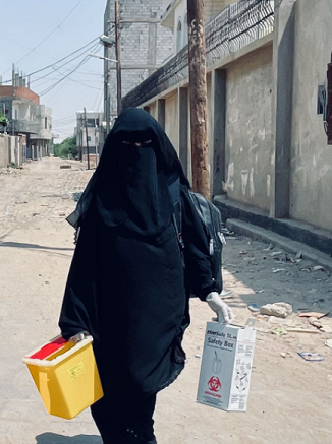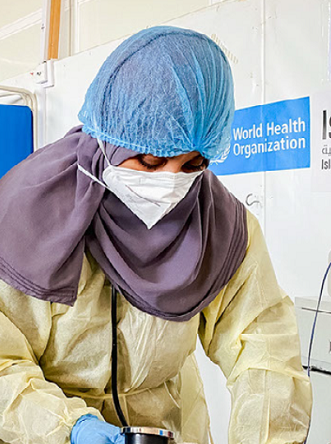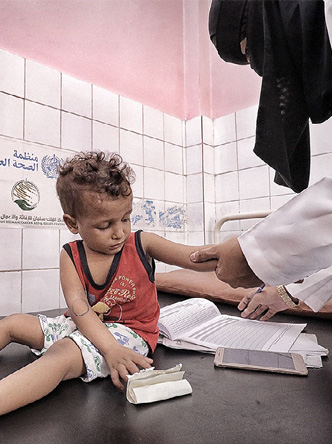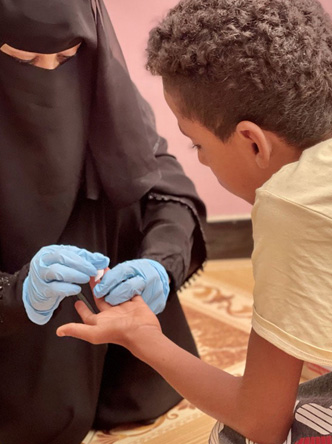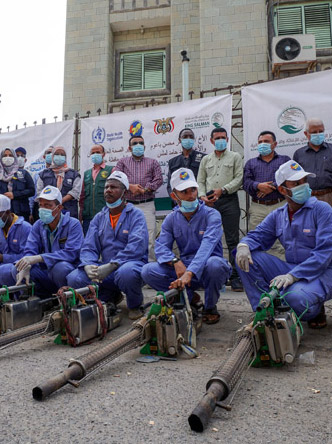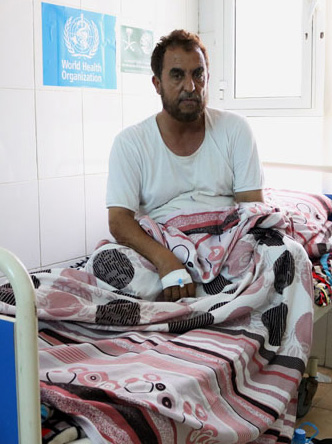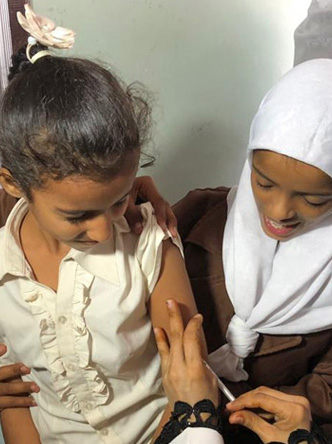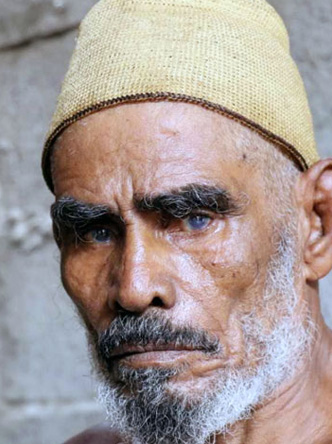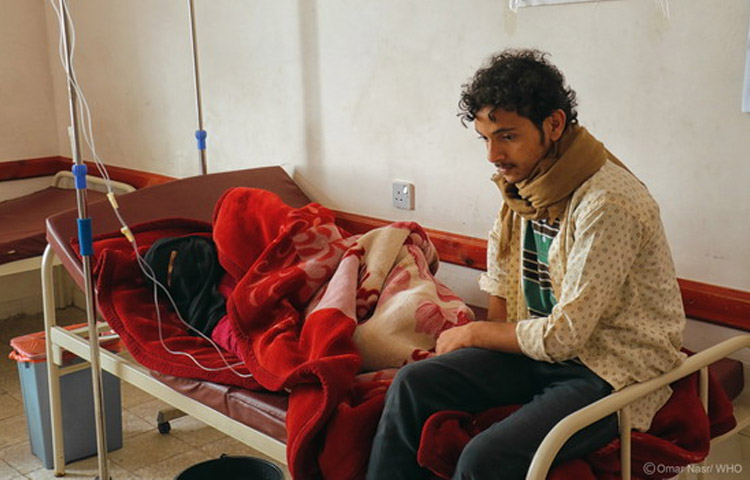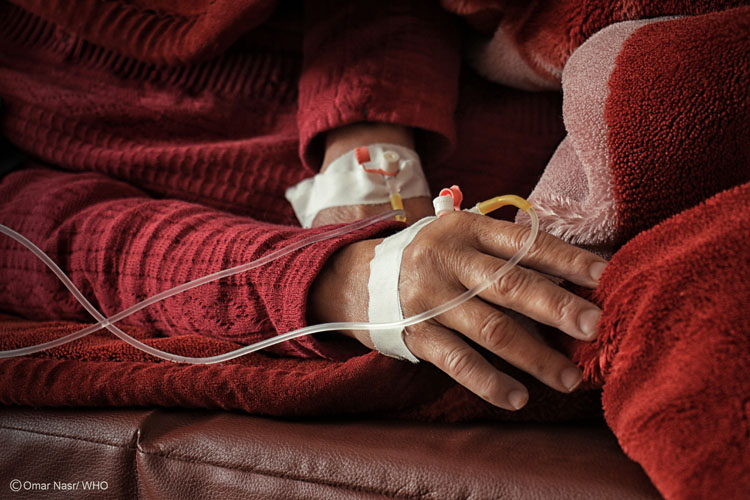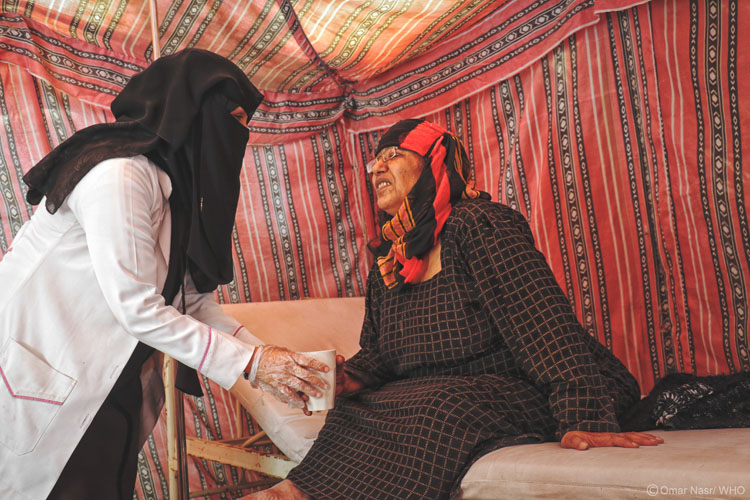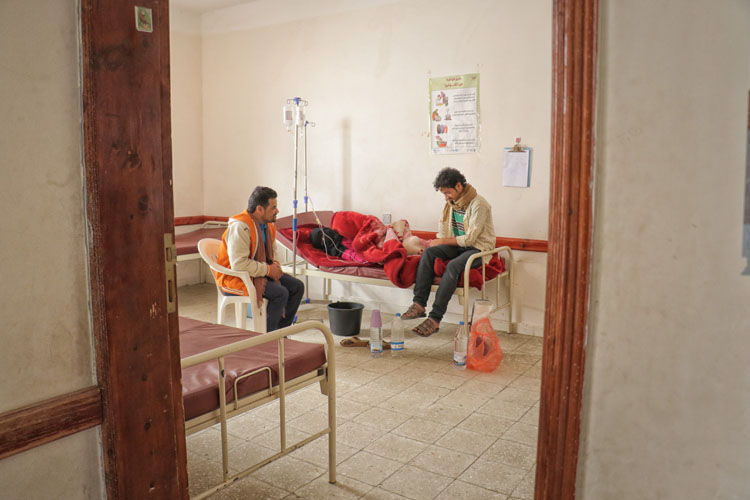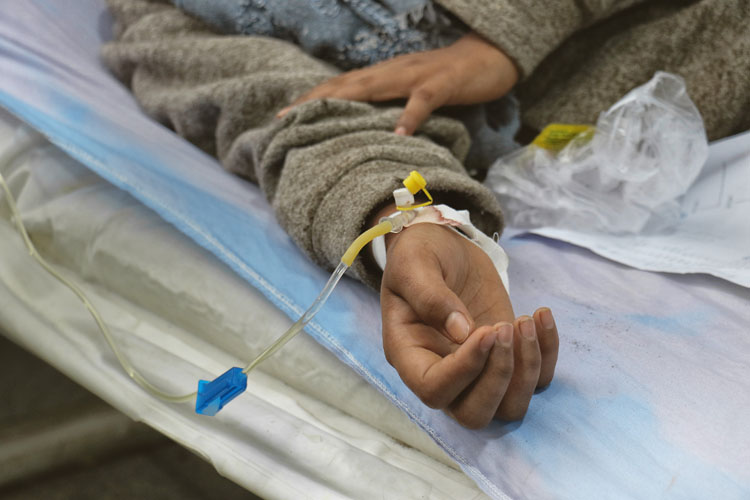Faces of Al-Hudaydah: civilians plagued by war, disease and hunger
The situation in Al-Hudaydah – one of the most impoverished governorates in Yemen – is further aggravated by the ongoing deadly conflict that erupted in mid-June. Many health facilities have either closed down or suspended their operations due to security concerns, and water and sanitation systems have been damaged, increasing the risk of waterborne diseases such as cholera. Electricity is unavailable in most areas, jeopardizing operations of health facilities and hospitals. Under the pressure of violence, high temperatures and spread of diseases, health needs remain dire.
While many people from Al-Hudaydah fled to neighbouring governorates, including Sana’a, Ibb and Dhamar governorates, others were forced to return to their homes and risk their lives as they were unable to cope with the cost of displacement. Their suffering is not only limited to poor living conditions, with many also enduring chronic diseases, such as kidney failure, diabetes, hypertension and cancer, as well as infectious diseases, including cholera.

















